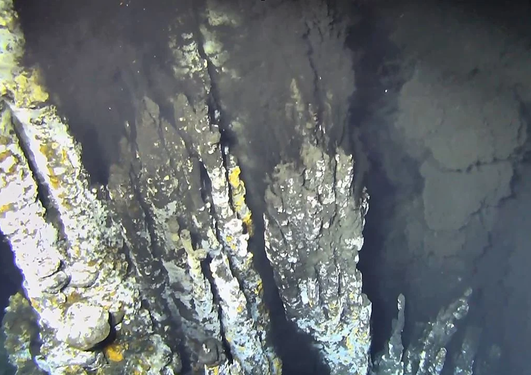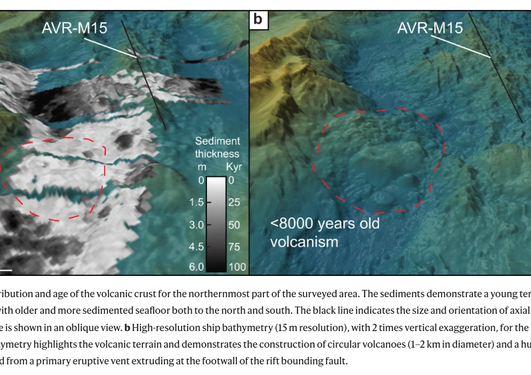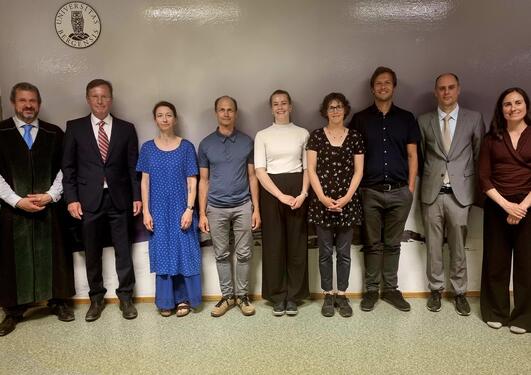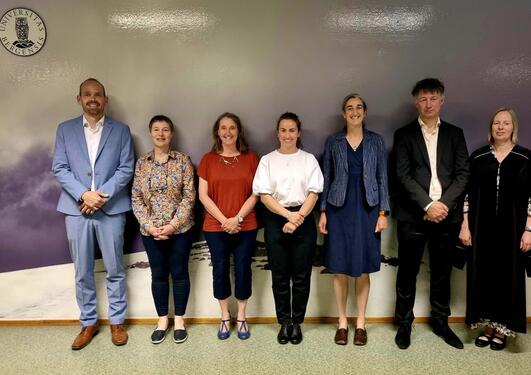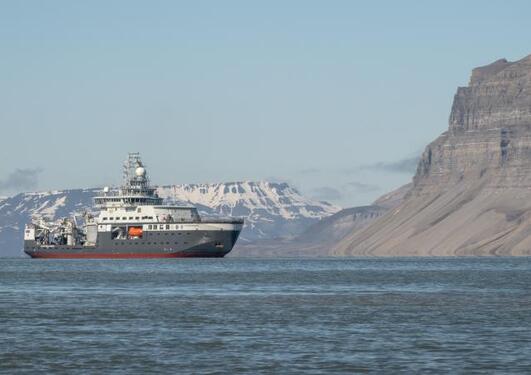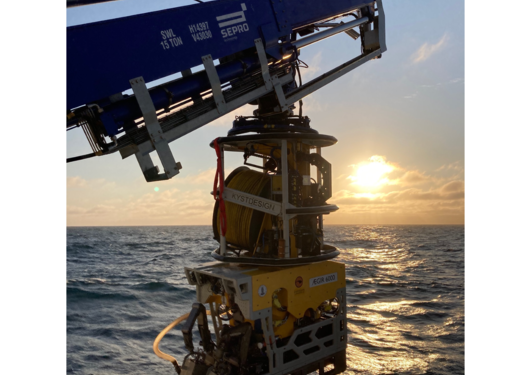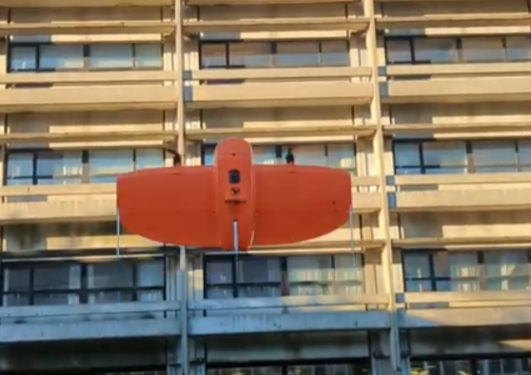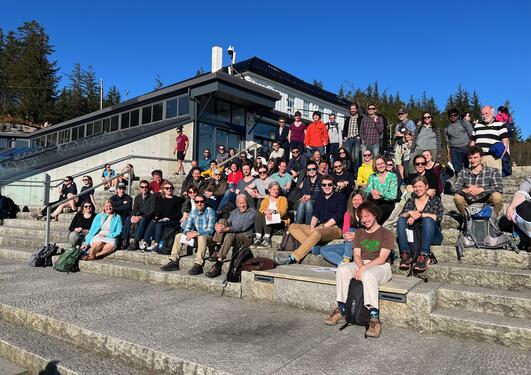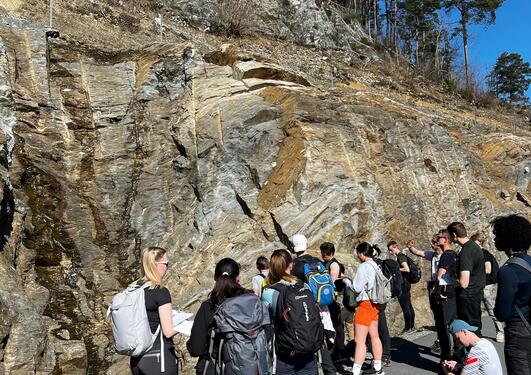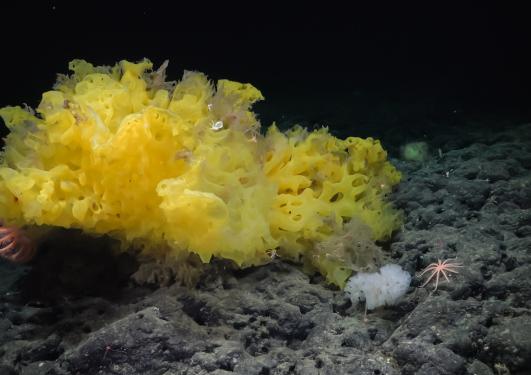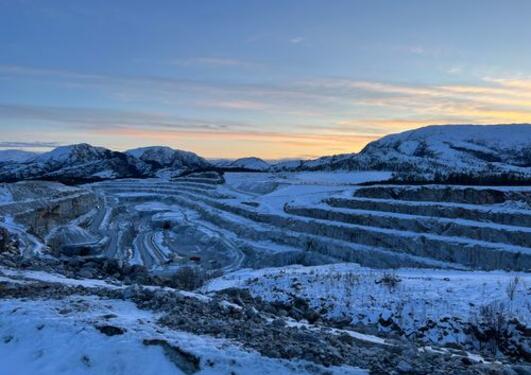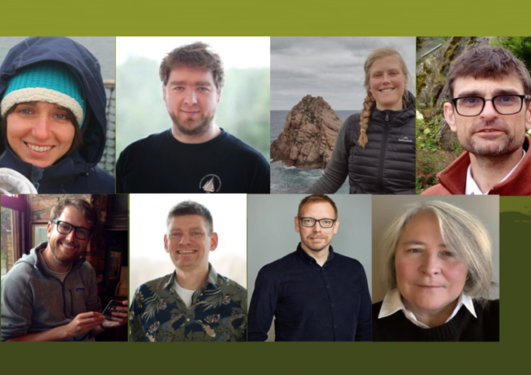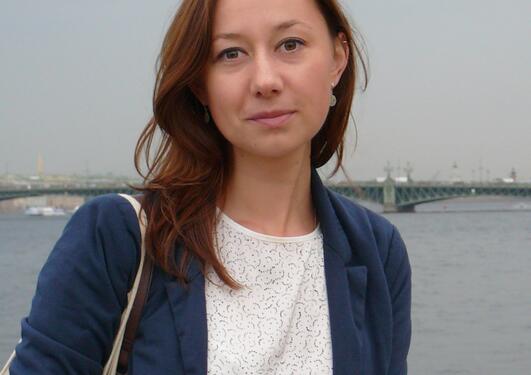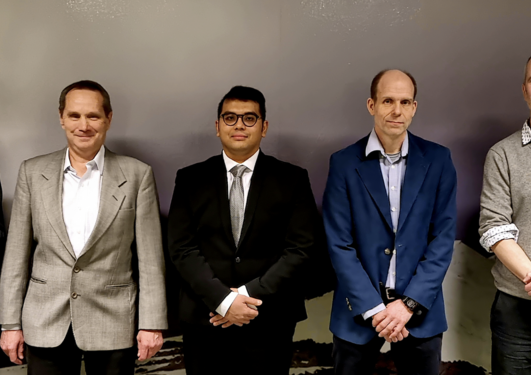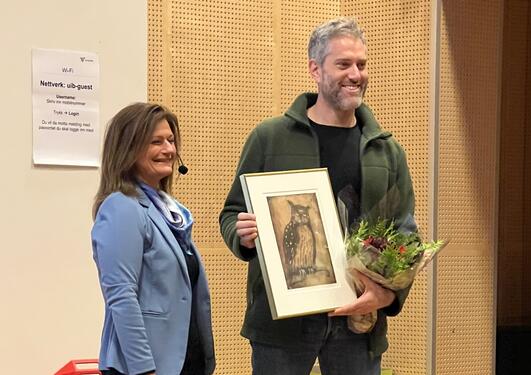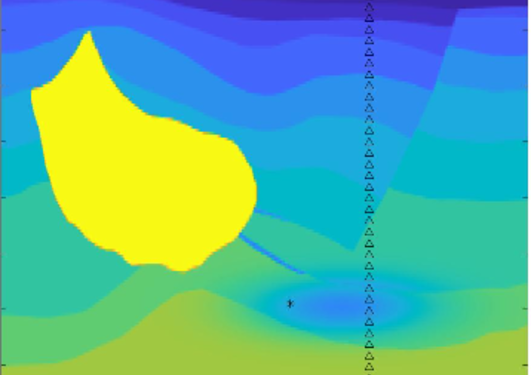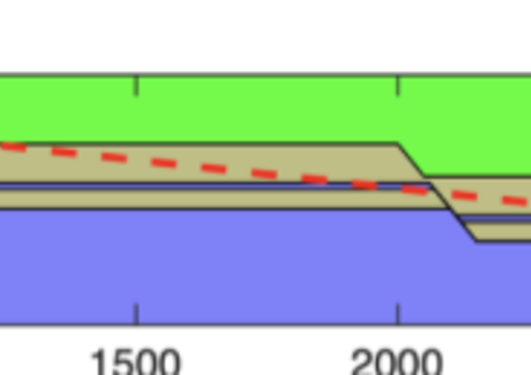News archive for Department of Earth Science
Early August, the GONORTH cruise organised by several Norwegian institutions came to an end. On its last ROV dive, a new hydrothermal vent field, named Ultima Thule, was discovered on the Lucky Ridge!
Håvard Stubseid and his colleagues just published a new article in Nature communication.
On Monday 19. June 2023 Åse Hestnes defended her PhD thesis: The post-Caledonian tectono-thermal evolution of Western Norway
On Friday 16. June 2023 Vilde Dimmen defended her PhD thesis "Geologic controls on fluid flow and seismic imaging of faults in carbonate rocks - Insights from quantitative outcrop analysis and reflection seismic modelling"
The ongoing GONORTH cruise is pushing the limits of deep sea exploration in the north.
Last week, the Department of Earth Science hosted a successful workshop on "Greenland ice sheet stability: lessons from the past". The workshop attracted 70 international participants from various disciplines and institutions. The main goal of the workshop was to foster interdisciplinary collaboration and exchange of ideas on the past, present and future of the Greenland ice sheet.
The second week in April the DeepReservoir team was in the
Ravenglass Estuary just north of Liverpool, with project partners from AkerBP,
Equinor and the Universities of Oslo, Delft and Liverpool.
17.-20. April the field part of GEOV102 was held in fantastic weather at Herdla and at Ulven. Eager students have worked independently in the field and have logged sediment profiles, studied beach deposits, collected georadar data, taken sediment cores and carried out structural geological mapping at Ulven.
Seabed Mining and Biodiversity Conservation in the Deep Sea: Where Science meets Policy (30.03.2023)
Deep seabed mining is coming closer to a reality, presumably motivated by the need for rare metals. In this lecture Lisa A. Levin, from the Scripps Institution of Oceanography, will highlight the deep-sea ecosystems being targeted for seabed mining, their biodiversity and why it matters, potential threats and management challenges.
Bachelor student Andrea, is in her last semester of her bachelor's degree in geology at department of Earth Science, UiB. She says: "I'm one of the two lucky ones who got an internship at Brønnøy Kalk".
Francesca vulcano and her coworkers have been awarded the 2022 best article award from FEMS microbiology ecology. The article investigates the evolution and adaptation to different environments of anaerobic methane oxidizing Archaea.
On Thursday 19 January Hasbi Ash Shiddiqi successfully defended his PhD thesis. The title of his thesis is 'Intraplate Earthquakes in Nordland, Northern Norway- Insight from Seismic Tomography and Seismicity Analysis'.
The Owl Prize, UiB's internal award for educational quality, is awarded to Bjarte Hannisdal and the course GEOV114.
The VISTA centre is a multidisciplinary research centre funded by the Norwegian Academy of Science and Letters.
The geophysics group is involved in the Centre for Excellent Innovation (SFI) DigiWells
Pages
- 2025
- 2024
- 2023
- 2022
- 2021
- 2020
- 2019
- 2018
- 2017
- 2016
- 2015
- 2014
- 2013
- 2012
- 2011
- 2010
- 2009
